In the tumultuous 1970s while women, African Americans, and gay and lesbian communities march for equality, three sisters wrestle with the legacy of their family’s Holocaust past. Memory’s Shadow is a compelling story of sisterly conflict and loyalty, the broader politics of sisterhood, and the power of the human spirit to rise when faced with the unimaginable recurrence of tragedy.
“Growing up in the 1950s and 60s the Berk sisters are united by love and divided by secrets. All of them live in memory’s shadow, whether they know it or not. In this, Benick’s second novel, they confront the polarizing events of the late 20th century, even as they grapple with the family’s tragic past in the Lodz ghetto. Memory’s Shadow is as spare as it is sweeping, taking in the minutiae of each sisters’ life, as well as the enormous historical events that buffet them, revealing the different worlds inhabited by members of the same family, even as they share an inextricable bond. History does not stop for healing, and violence and injustice continue to cut through the Berk family’s lives. In this multi-generational story of legacy and survivorship, there are no easy answers. All the characters must find their own forms of commemoration, their own paths to resiliency and hope.”
—Maria Meindl, author of The Work and Outside the Box
“Memory’s Shadow is a moving story that addresses the question of what makes and connects family. It is an emotional account of three sisters and their relationships, set in historical and cultural backgrounds carefully and effectively woven into each sister’s journey. It is writing that can’t help but prompt family reminiscing on a personal level for every reader.”
—Cissy Lacks, author of Miriam’s Way and a recipient of the PEN/Newman Award
“In Memory’s Shadow, Gail Benick sensitively deals with a common feature in Holocaust survivor families – the inability to speak about their experiences. What makes this story unique is that two of the protagonists are child survivors of the Lodz ghetto, who, following their parents’ example of silence, block a younger sister’s questions. In journal entries, the author skillfully depicts the inner world of the three sisters and their fraught relationship. Only after suffering more loss, do the two survivor sisters learn that by accepting and integrating the memory of trauma, they can heal and pass on their family’s history and legacy to the third generation.”
—Renate Krakauer, author of Only by Blood
“Gail Benick’s second novel, Memory’s Shadow, is an earnest exploration of the bond between three sisters as they care for their aging father and struggle, each in a different way, with their family’s Holocaust history. A heartfelt book about facing the past and building a future.”
—Nora Gold, author of The Dead Man, Fields of Exile, and Marrow
powered by Crowdcast
Linda Sue
Linda Sue smoothed the wrinkles from the white tablecloth in Papa’s dining room. She was helping to prepare for Shabbat dinner, a winter Shabbat on one of the darkest and coldest evenings of the season, when threats of global cooling and a new ice age seemed eminently possible.
In such a climate, with weather experts predicting polar bears in Manhattan and penguins in Florida, a meal of heavy food, most of it salty and overcooked, felt particularly welcoming as they braced for another storm. Linda Sue walked into the kitchen where Josh and his younger sister, Stacey, were removing dishes and glassware from the cupboard to set the dining room table. As soon as Josh saw his aunt, he began needling her about the promised trip to Poland.
”I’ll be ancient by the time you get around to organizing this thing, Aunt Linda,” Josh taunted her.
“Okay, this summer for your high school graduation present,” she said.
Hetty, bending over the oven to rustle the roasting potatoes in hot oil, listened to their banter. Each hour delaying their trip, every millisecond of postponement, felt triumphant to her. She dreaded the moment that Josh would leave for a country she wanted only to forget. Furthermore, none of her synagogue friends had teenage sons or daughters who were travelling behind the Iron Curtain. Maybe Linda Sue could chaperone Josh on a Grand Tour of Europe, like upper-crust Englishmen used to take when they finished their education at Oxford or Cambridge. Hetty was prepared to pay great sums of money for Josh to trek through France and Italy in search of art, culture, and the origins of Western civilization. She imagined his postcards from Paris, Venice, Rome, and Pompeii. He might even perfect his French and learn a bit of Italian. It never hurt to have more than one language, Mama had often advised her, because a girl never knew where she might end up.
For Linda Sue, the endless dithering—her own fault, she would be the first to admit—felt like madness. There was nothing more quirky, she was convinced, than the Berks’ inability to make firm decisions and get on with it. Tilya couldn’t figure out how to bring a baby into her life. Hetty couldn’t decide whether to sell her house and move farther west. And she couldn’t even plan a simple two-week holiday with her nephew. Reaching over Stacey’s head for a wine goblet stored on the cupboard’s top shelf, Linda Sue could barely grasp the fragile stem. The goblet slipped through her fingers and shattered. Josh began to pick up the pieces, but Hetty wouldn’t let him or Stacey go anywhere near the slivers of glass. She feared—although she didn’t dare to say it aloud—a bloodbath.
When Hetty rose to bless the Sabbath candles a bit later, her voice sounded weary. She kissed Josh and Stacey on the tops of their heads, lingering for a moment with her hands on their shoulders, hesitant to let go. Papa said the blessing over the challah, and then he pulled a small piece from the end of the twisted bread and salted it before he took a bite.
”Gut Shabbos, my kinder,” he said.
“A-a-men,” said Josh, holding a hunk of the yellow bread in his hand, the sesame seeds on the crust falling onto his plate. “This summer,” he announced, “Aunt Linda is finally going to take me to Lodz. And no arguing. It’s my grad present.”
“I want to go, too,” Stacey said. Her thick auburn curls were held back with a narrow headband, which made her look much younger than fifteen and drew attention to the dramatic V-shape in her hairline near the centre of her forehead.
“That’s enough,” Hetty said. She glanced several times at Lenny across the table, registering his increasing discomfort with the direction of the conversation. She knew that her husband would never allow both of their children to leave St. Louis with Linda Sue in search of the Berk family’s elusive past. Absolutely not. Over the years, he had expressed a touch of skepticism regarding the family’s survival in the Lodz ghetto during the war. He was frankly detached from all things European because his family came to the States in the previous century and regarded themselves as one hundred percent American. Without being disrespectful, he wished the whole business of the Berks’ past would go away. Papa frowned at Josh and shook his head in mild distress while Hetty set the charity box on the table. She gave Josh and Stacey a few coins to push through the opening at the top of the tin container. “You don’t need to go to Poland to dredge up injustices from the past,” she told Josh and Stacey. “Charity and good deeds start at home.”
“That’s like comparing chalk and cheese,” Linda Sue said to Hetty.
“I don’t get it,” Stacey said. “What do chalk and cheese have to do with Poland?”
“Maybe the Berks were dairy farmers in Lodz,” Josh said.
“Don’t be ridiculous,” Hetty corrected him. “Who was milking cows in the ghetto?”
Papa winced at his grandchildren’s ignorance, the gaps in their understanding of his identity and his geography. They knew next to nothing of Warsaw or Lodz and even less about the shtetls in Poland, where Jews had lived long before the Holocaust—where, in fact, his own ancestors had roots. Yet, he listened and said nothing.
“Okay, Josh,” Linda Sue said. “I’m going to start looking for cheap flights tomorrow. And a little information about Jews in Poland wouldn’t hurt either.” She rattled the charity box that had once held her own sweaty nickels and dimes.
***
Three Shabbat dinners later, between the gefilte fish and matzah ball soup, Linda Sue announced the August dates for their Poland trip. It would be the first time any of their family members had stepped foot in the old country since the end of World War II. The response around the dinner table on Friday night was less than joyous. Linda Sue was not surprised. She herself felt overwhelmed. Every inquiry about trains in Poland forced her to picture what could have happened to Mama, Papa, Hetty, and Tilya. Each time she studied the map of Poland, she imagined the four of them hiding somewhere in a forest or a barn or cellar. As she searched for a tour guide, she wondered what a complete stranger would be able to tell her and Josh about the Berks’ survival. This guide would have to be some sort of diviner. A magician pulling ghostly relatives out of a hat.
As their departure loomed closer and closer, Linda Sue resented the veil of secrecy cloaking the Berks’ past more and more. She wished her family understood that their secrets caused her considerable pain. How could they not see that? Just before she finalized the purchase of the airplane tickets, she gave Tilya one last chance to divulge what she knew. Big mistake, Linda Sue thought, as soon as Tilya answered the phone in New York. Her flat, disinterested tone seemed to be reserved especially for her sisters.
“So, what’s doing?” Tilya barely managed to ask after an awkward pause. The emotion in her voice was so tempered that Tilya could have been speaking to a brick wall.
“Not much,” Linda Sue said. “Are you in the middle of something?” No matter how callous Tilya appeared, Linda Sue never stopped thinking of her as the family’s brightest star, maybe even the Jonas Salk of women’s studies. Who was she, Linda Sue, to interrupt her sister on the cusp of a big breakthrough in the study of androgyny? But she couldn’t wait any longer for Tilya to become a national heroine. “You’re sure you don’t want to go to Poland with Josh and me this summer?” Linda Sue spoke as if this were a straightforward question rather than an indirect appeal for some sort of communion with her sister.
“Yep. Absolutely sure,” Tilya said. “Is that why you called?”
“Sort of.” Linda Sue sighed. “I just don’t want any surprises when we get there, Tilya. Josh is still a pretty impressionable
kid, you know.”
“I’m well aware of my nephew’s age and the way he’s been shielded from the big bad world we live in.” The phone line began to crackle. “And your point is?”
“It must be snowing or raining where you are, Tilya. There’s so much static, I can hardly hear you. Anyway, if you could stop being such a cold cucumber for one second…” Her voice trailed off.
“I am not a cold cucumber,” she pushed back. “It’s just that I’m looking forward, not backward, like some people I know.”
Linda Sue twirled her hair around her fingers, nervously, then licked her upper lip, which felt dry and in need of her misplaced ChapStick. The static on the phone line was becoming intolerable. “Well,” she said to Tilya, “maybe, just maybe, a memory, even a tiny fragment from those times, still rattles in that head of yours. Would it be so terrible?”
“Actually, it would,” Tilya replied. “I’ve got to go.”
“But… how is your search for a baby going?”
“So so,” Tilya said. “Listen, Linda Sue, I need to—”
“Wait. Don’t hang up yet. I want to tell you one more thing.”
“Make it fast.”
“Well, all thirty-three buildings of Pruitt–Igoe are now gone,” Linda Sue said. “Finito. Can you believe it?”
“I know,” Tilya said. “It’s terrible. My friend Marion from Wash U. told me about it. And lots of the people in those buildings were women. Single parents.” With a flick of her wrist, she put down the receiver of the phone, leaving Linda Sue to wonder what just happened.
***
June 25, 1976
Dear me,
I’m so sick and tired of Tilya’s smug attitude. Does she really believe that she is so superior just because she wants to liberate women? Like she’s the only one who’s ever tried to make the world a better place. Oh, sure. She should only know what my fifth graders are doing with their history projects on heroes. I’m clipping my lesson plan to this page in case my holier-than-thou sister ever gets her hands on my diary. She promised she wouldn’t read it, but you never know what will happen. I’ve marked up my copy of the lesson plan with a few notes in parentheses just to show that I’m a very conscientious teacher, the best I can be. I, too, am saving the world in my own way, one student at a time.
Toodle-oo for now,
LS.

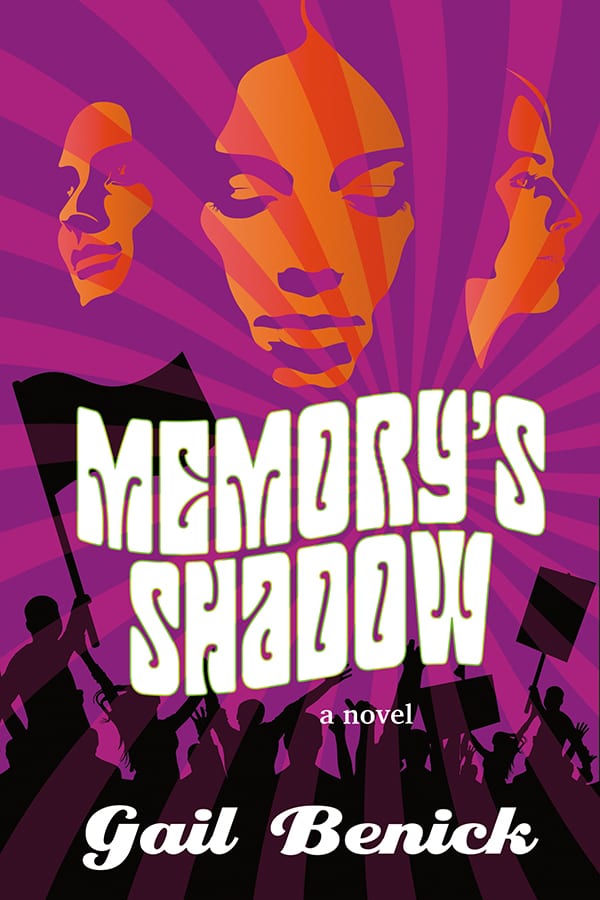

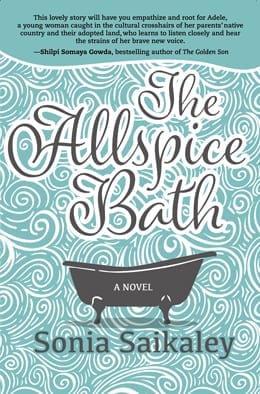
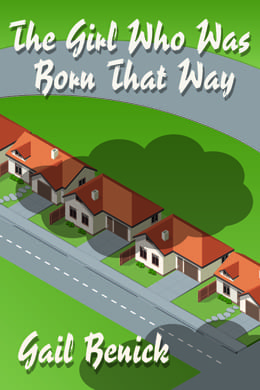

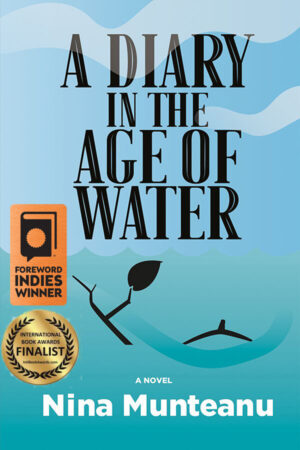
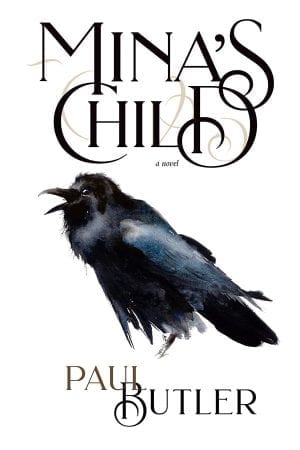
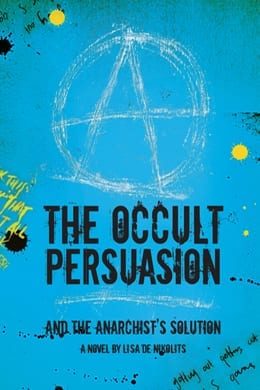
Inanna Admin –
Holocaust survivors’ children grapple with past in new novel set in St. Louis
Memory’s Shadow by Gail Benick
reviewed by Robert A. Cohn
St. Louis Jewish Light – September 23, 2021
https://stljewishlight.org/opinion/holocaust-survivors-children-grapple-with-past-in-new-novel-set-in-st-louis/
Gail Benick, a proud alumna of University City High School Class of 1963 who now lives in Toronto, has published Memory’s Shadow, a gripping novel that traces how three generations of Holocaust survivors deal with the never-ending trauma of the Shoah.
Mama and Papa Berkowitz, the older generation who lived through the horrors of the Polish Łódź Ghetto, cope by refusing to talk about their literally unspeakable experiences. One of the sisters, Hetti, has a son, Joshua, who demands that the family travel to Łódź to directly confront their past. He discovers that the three sisters had a brother, a Holocaust victim, after whom he is named.
“The Berkowitz family is renamed Berk with the flick of an immigration officer’s pen,” Benick told the Jewish Light. “But assimilation to American culture is nowhere near that simple for the four Berk sisters, who face boundless opportunity and irretrievable loss.”
Each of the sisters is highly intelligent and well-educated. They constantly bicker and mock one another, as siblings are wont to do, but they are fiercely loyal to each other and to their emotionally wounded and increasingly frail Papa, who adamantly refuses to share his horrific experiences. First-generation children of survivors often grow up with huge gaps in their knowledge about their families, including missing photos in family albums, learning about cousins who perished and dealing with survivor’s guilt: Why did I deserve to live and not them?
St. Louis area readers will enjoy Benick’s frequent local references: Tulane Avenue, where the frail and widowed Papa resides; Delmar Boulevard; North and South; and in the city, Crown Candy, the St. Louis Zoo and the Pruitt-Igoe housing project, which opened optimistically in the 1950s only to be demolished in the 1980s, the decade that serves as the time frame of Memory’s Shadow.
Benick’s first novel, The Girl Who Was Born That Way, a prequel to Memory’s Shadow, is set in the “tumultuous” 1970s and can be read as a stand-alone novel or as part of a series.
Asked how her University City experience influenced her decision to write Memory’s Shadow, Benick said:
“When I began to write ‘Memory’s Shadow,’ I knew the story had to be set in U. City. As the old adage goes, ‘Write what you know.’ Although I have not lived in Missouri for decades, the U. City streetscapes remain vivid in my mind. … These streets conjure up family and friends from that earlier time in my life.
“I associate U. City with boundless optimism, which I want to capture in Memory’s Shadow, but I’m also aware of a very difficult world that exists in the city of St. Louis then and now. In ‘Memory’s Shadow,’ I investigate that contrast.”
We first meet the three sisters — the aforementioned Hetti; Tilya, who preferred to be called Toni, (the protagonist); and Linda Sue — at a cemetery on Hanley Road. They have gathered at the gravestone of their fourth sister, Terry Sue Berk, who died of anorexia in 1963. All four sisters share the middle name Sue.
At the gravestone upon which they place stones, they are united in grief but bitterly divided over long-simmering grudges illustrated by their inability to unite on plans for the afternoon.
Toni had given each of her sisters notebooks in which to keep journals of their struggles to come to terms with their shared grief and trauma.
Benick describes her compelling and beautiful novel this way:
“At its core, Memory’s Shadow is about family, what connects family members and what separates them. In the story, the three Berk sisters wrestle with their parents’ Holocaust past. I’d like readers to consider whether the legacy of historical trauma can be transmitted from one generation to the next.”
Do violence, abuse and suffering echo down from one cohort to the next?
“The second generation, the children of survivors, often faced a wall of silence,” Benick said. “Survivors did not always talk to their children about what they’d experienced, and children did not always ask.”
“But the third generation, the grandchildren of Holocaust survivors, will perhaps take a different approach. Yes, the theme of ‘never forget’ remains vitally important. But my novel is about moving forward and uncovering a usable past waiting in the shadows.”
Inanna Admin –
The CJN’s book columnist Hannah Srour looks at memoirs and fiction that explore the Holocaust
Memory’s Shadow by Gail Benick
reviewed by Hannah Srour
The Canadian Jewish News – April 26, 2022
https://thecjn.ca/arts/the-cjns-book-columnist-hannah-srour-looks-at-memoirs-and-fiction-that-explore-the-holocaust/
Following the fictional Berk family sisters throughout the 1970s and the early 1980s, this is a powerful story of sisterhood, of intergenerational trauma, and of the long shadow that memory casts on the past.
The two eldest Berk daughters—Hetty and Tilya (who now goes by Toni)—and their parents are survivors of the Lodz Ghetto, while the younger two–Terry Sue and Linda Sue—were born in America.
Memory’s Shadow takes place at a time that predates widespread reckoning with the Holocaust in the American public conscience. Consider that the impactful miniseries Holocaust, which garnered over 100 million viewers in America alone, and was a considerable factor in raising greater awareness, didn’t premiere until 1978. Gail Benick’s fiction also notably takes place before any major video testimony projects were initiated.
Those of the family who survived the Holocaust suffer in private. They refuse to speak of their experiences, a cause for much conflict throughout the novel.
The narrative is set among the social upheavals in America during this period, as each sister grapples with the suffering that continues to impact the family’s present, meanwhile caring for their aged father. (The mother has passed before the events portrayed here.)
With Memory’s Shadow, Benick has crafted a captivating story, as the Toronto author writes each sister with a distinct voice—with her own worldviews, passions, guilts, and burdens.
Linda Sue, for instance, is desperate for the information which has been withheld from her the whole of her life, including by her sisters. This is a desire she shares with Hetty’s son Josh, and together they embark on an investigative trip to Poland to piece together their family’s story. This endeavour has a profound personal impact and affects their relationships with the rest of the family.
Benick’s novel is touching, and it leaves readers to consider the complex impact of Holocaust trauma and memory.